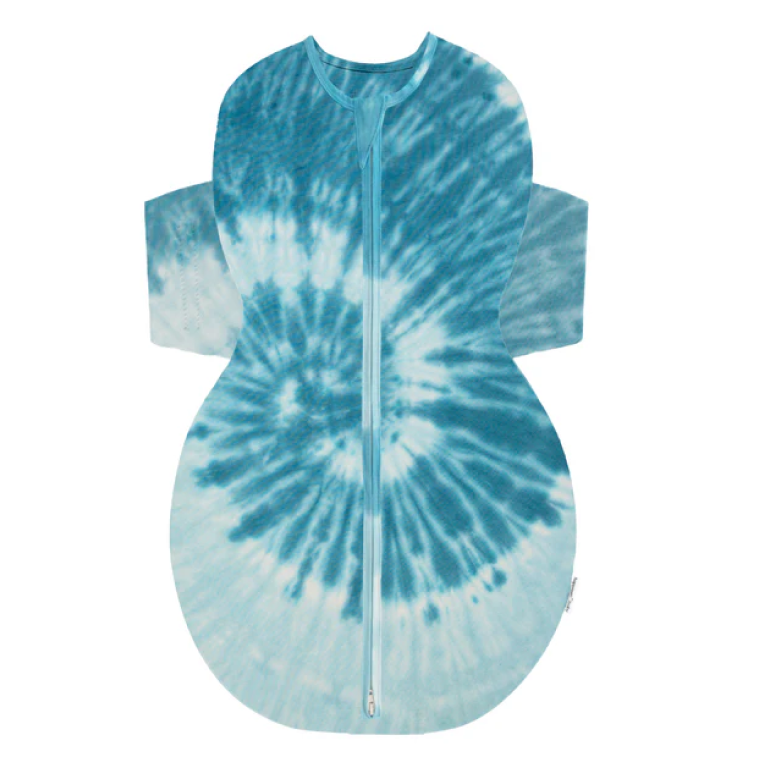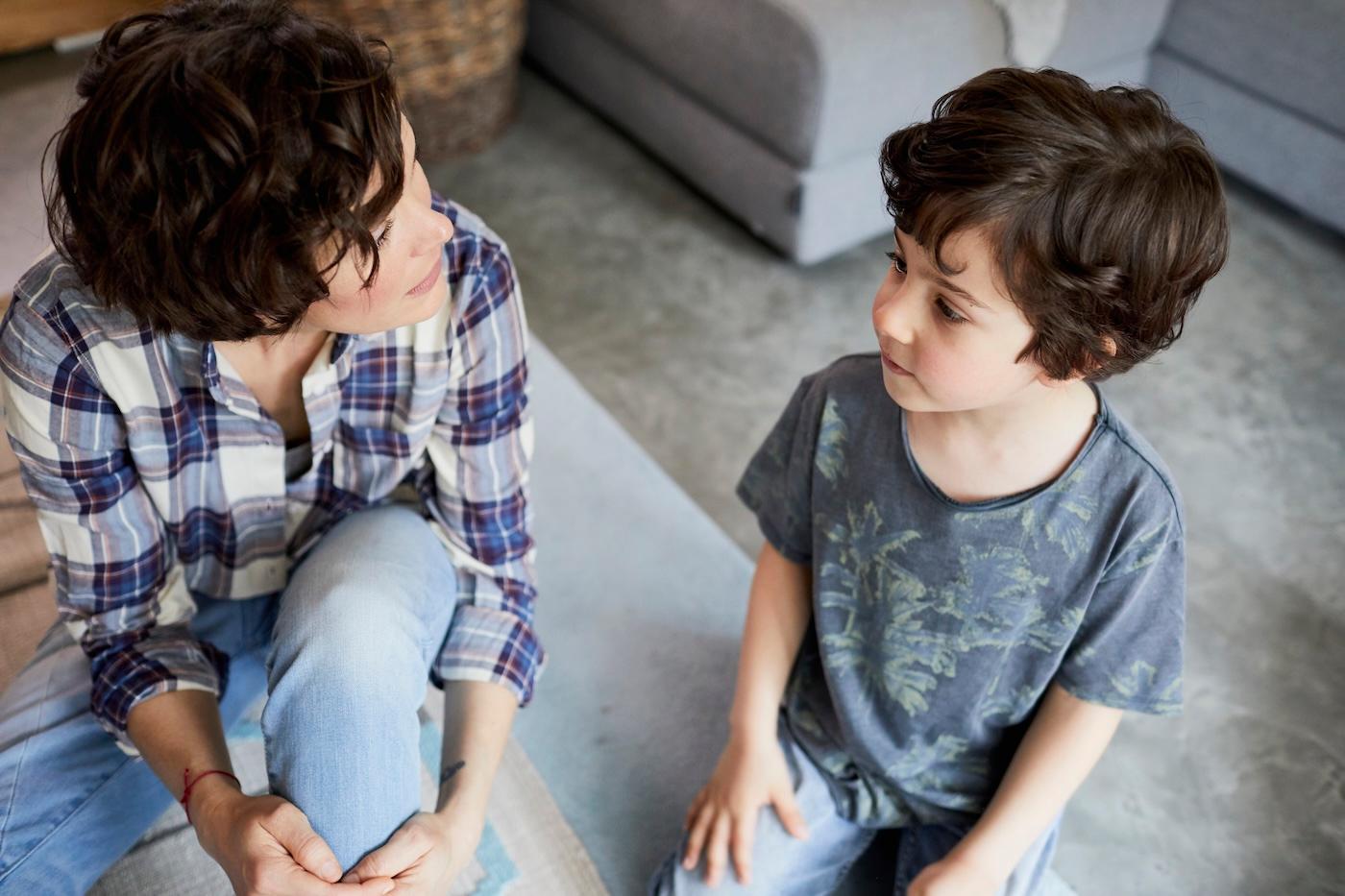TODDLER
Why Toddlers Misbehave
We all know how tough it is to raise and civilize a toddler, but have you ever stopped to think how tough it is to be a toddler?

Written by
Dr. Harvey Karp

We all know how tough it is to raise and civilize a toddler, but have you ever stopped to think how tough it is to be a toddler?
From your toddler’s perspective, she is losing all day long! She’s weaker, slower, and shorter than everyone else…and that’s just the start of her challenges. Toddlers face four big struggles every day that make it extra-hard for them to behave like little angels.
Our Modern World Is Weird to Them
Our homes are both boring and overstimulating to toddlers. For 99.9% of human history, children spent most of every day frolicking outside. Our homes are boring because they replace the exciting sensations of nature with an immense stillness. Additionally, many traditional toddlers’ delights (running after kids and dogs, throwing dirt clods, catching bugs, climbing trees) are literally beyond reach.
Yet, at the same time, our modern world can be too stimulating to toddlers. It bombards them with jolting experiences that kids in the past never had to deal with: crazy cartoons, slick videos, clanging apps, noisy toys, and bright colors everywhere. We may be used to all this, but it can make many little children feel stressed.
As the day wears on, all this over- and under-stimulation can drive many little kids over the edge into fatigue, irritation, and misbehavior.
Their Brains Are Out of Balance
Your toddler’s brain is like a buzzing beehive with twenty billion cells and 50 percent more nerve connections than we have in our big heads! All these connections mean millions— or billions—of signals zipping around. “Go here!” “Go there!” “Touch it!” “No, don’t!” Yikes! No wonder little kids spin out of control.
To help manage this whirlwind of mental activity, our brains are split into a right half and a left. The left half is the methodical nerd of the nervous system. It helps us listen carefully, be logical, and stay calm. The right half is the hyper mad-dasher of the nervous system. Unlike the thoughtful left side, the right side is distractible, impulsive, and emotional.
The two halves of the brain are in pretty close balance in big kids and adults, but the left side tends to be a bit more in control. Guess which half runs the show in toddlers? Yup, you guessed it…the right. In fact, your tot’s emotional right side is so busy and noisy it often ignores the patient voice of the left side telling it to settle down.
And as if all that weren’t challenging enough, your toddler’s brain gets thrown even more off balance when she’s upset. Big emotions instantly shut down the thoughtful left brain and dramatically amp up the primitive right.
Their Normal Development Can Make Them Misbehave
Believe it or not, toddlers are biologically driven to do many of the things that drive us bonkers. Let’s focus on a few of the developmental characteristics typical of all toddlers, and likely to put them on a collision course with their parents:
- Toddlers are compulsive walkers . . . and climbers. After months of being limited to lying down, sitting, and crawling, suddenly being able to walk and climb is absolutely thrilling. Your primitive little friend will roam around nonstop from dawn to dusk, feeling, Wow, this is soooo cool!
- Toddlers are very self-centered. Most toddlers demand to be in the spotlight: Talk about me! It’s a wonder their first word is usually “ma ma” . . . and not “me me”!
- Toddlers have trouble switching gears. Little tots often have trouble going from one activity to the next. They seem like machines without an “off” switch. You see this all the time in their play: Whee! Let’s whack this drum…1,000 times in a row!
- Toddlers have the attention span of a bumblebee. Young kids flit from thing to thing. As toddlers mature, they gradually become able to focus their concentration for longer periods of time.
- Toddlers are rigid. Two-year-olds are not famous for flexibility. You can see this even in the way young toddlers approach the rules of language. For example, once they learn that adding “s” makes things plural, they may say “foots” instead of “feet,” and are likely to continue doing so no matter how many times you correct them. The same is true for their lack of flexibility about any changes that occur in their daily lives. For example, your tot may get really upset if one night you deviate from your normal routine and forget to say “Sweet dreams!” to her dollies. And like us, the more stressed and tired they feel, the more rigid they become.
- Toddlers can’t stop pushing the limits. A parent’s job is to set smart limits, and a toddler’s job is to push those limits. Toddlers literally can’t stop themselves from exploring, touching, and pulling on everything. That’s how they learn about the world and about themselves. So, while you may feel that your little friend keeps defying you, she may feel you’re unfairly blocking her greatest joy—discovery.
Their Temperaments Can Make Them Overreact
Every toddler is a totally unique person with his very own face and voice . . . even his personality is one-of-a-kind. Each child is born with a personality as matchless as his fingerprints. It’s a mixture of intelligence, humor, and a fascinating quality called temperament. A toddler’s temperament could be easy…or it could be spirited! And when a toddler’s temperament clashes with her parent’s…it can lead to challenges!
For more tips on understanding and living in harmony with your toddler, check out The Happiest Toddler on the Block!
Disclaimer: The information on our site is NOT medical advice for any specific person or condition. It is only meant as general information. If you have any medical questions and concerns about your child or yourself, please contact your health provider.
SHARE THIS ARTICLE
MOST LOVED
Sleepytime Sidekicks












